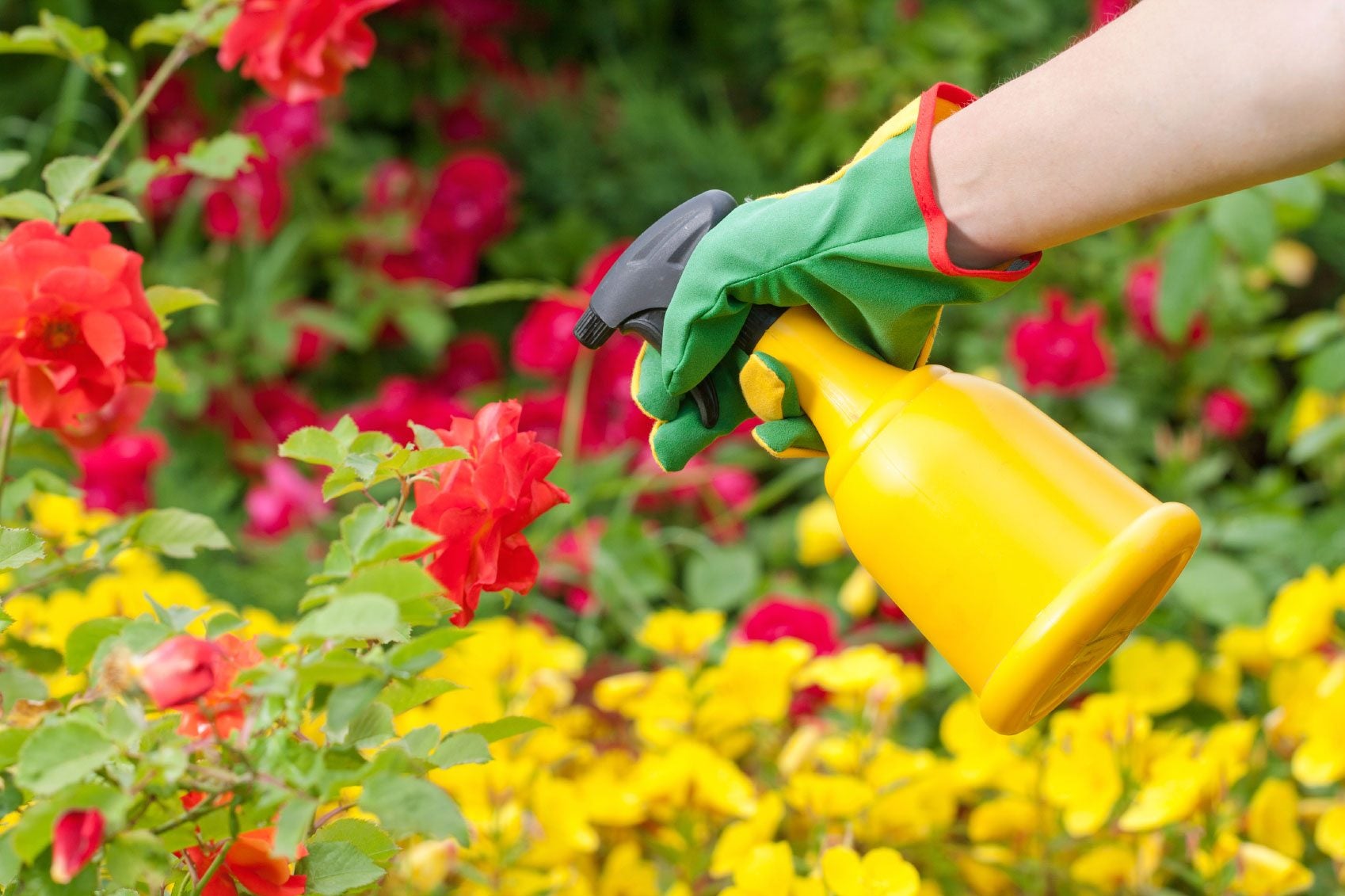When To Apply Pesticides: Tips On Using Pesticides Safely


It might seem that the best time to use a pesticide is right when you see pesky insects. However, a few rules do apply and timing is also an important issue. The insect has to be at the most effective state of development, and weather can minimize the usefulness of the product or even cause it to get into groundwater and poison streams, affecting entire ecosystems. Let's learn when to apply pesticides and some safe tricks and tips.
When to Apply Pesticides
Responsible pesticide use in gardens is important, regardless of whether you use a chemical form or a natural homemade combatant. The very fact that it is used to kill something means it requires respectful and smart handling. You should always dress protectively and follow the manufacturer's instruction regarding mixing, application rates, and timing. Pesticide application timing for a direct strike relies upon the product catching the insect at the correct stage. Many insects have several instars and go through metamorphosis. They may be more susceptible to the pesticide as nymphs or as larvae. The literature on the product can help you decide at what point of the insect's development it is most effective so you can decide when will be the best time to use a pesticide. Other factors in application would be wind, rain, and proximity to wildlife.
Weather and Pesticide Use in Gardens
Moisture is a conductor for pesticides. It is mixed in concentrates to make a useful spray and it washes pesticides down into plants where secretive insects live. However, it can be dangerous to spray where running streams may carry toxins down to animals and fish and then linger in the water table, poisoning the area permanently. This is why it is important not to apply pesticides just before rain. Pesticides leach through soil to the water table and downstream bodies of water. They can contaminate entire habitats, rendering them useless for the denizens of the area. The best time to use a pesticide is when the soil is moderately dry and no rain is expected, on a cloudy day when temperatures are moderate. Never apply pesticide when there is wind to prevent the chemical from drifting to non-target areas.
Using Pesticides as a Last Resort
Because they are so dangerous and persistent, using pesticides should be restricted. In most cases, unless some huge infestation has eaten half the leaves of a plant, you can handle the issue with household items and manual removal. Many insects can be dissuaded or even killed with a simple at-home spray with water and a few drops of dishwashing concentrate. There are many recipes on the internet for home-brewed bug juice with ingredients like mint, garlic, and citrus. If you must use chemicals in your garden, pay special attention to pesticide application timing and be cautious not only about your own health but also that of others and of wildlife too. Note: Any recommendations pertaining to the use of chemicals are for informational purposes only. Chemical control should only be used as a last resort, as organic approaches are safer and more environmentally friendly.
Sign up for the Gardening Know How newsletter today and receive a free copy of our e-book "How to Grow Delicious Tomatoes".

Bonnie Grant is a professional landscaper with a Certification in Urban Gardening. She has been gardening and writing for 15 years. A former professional chef, she has a passion for edible landscaping.